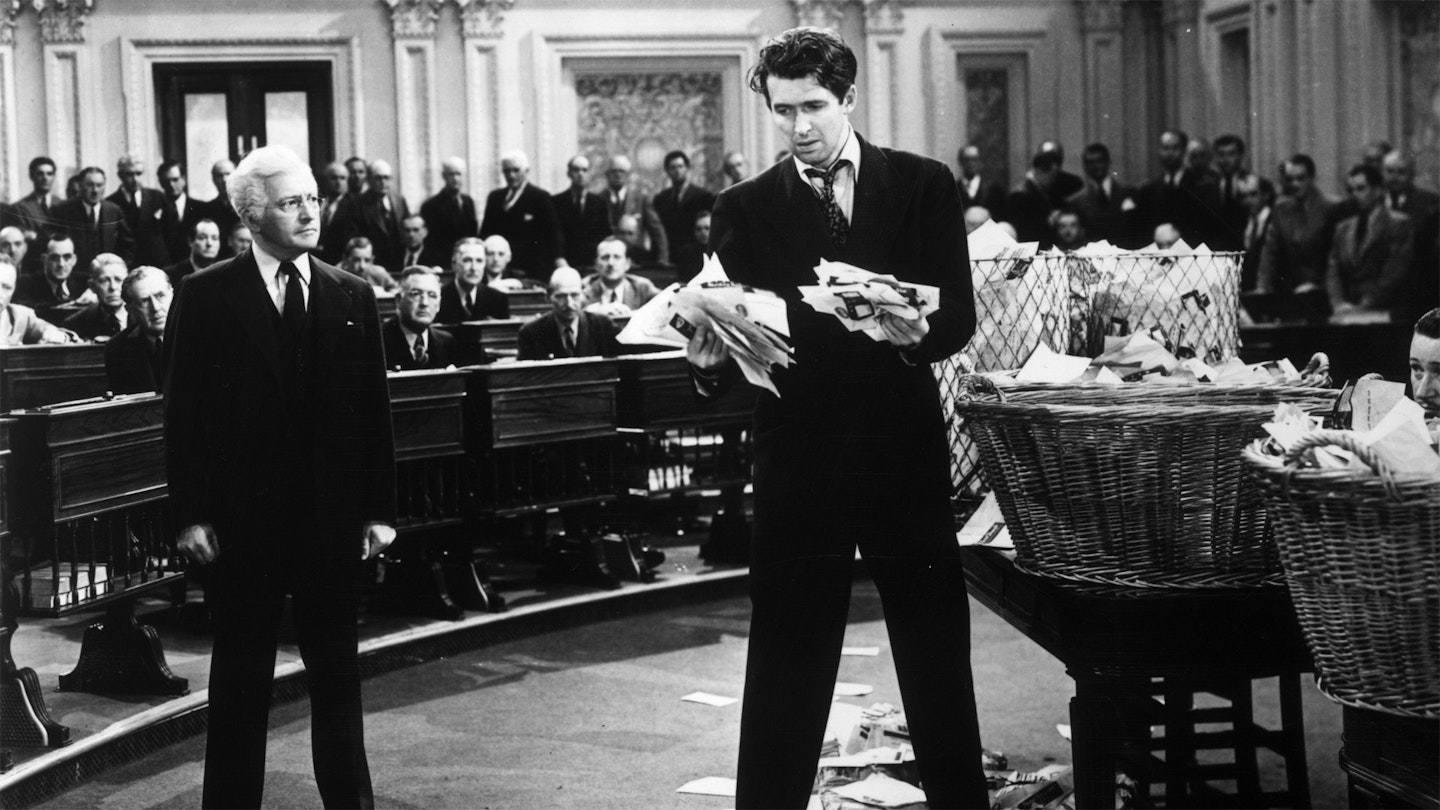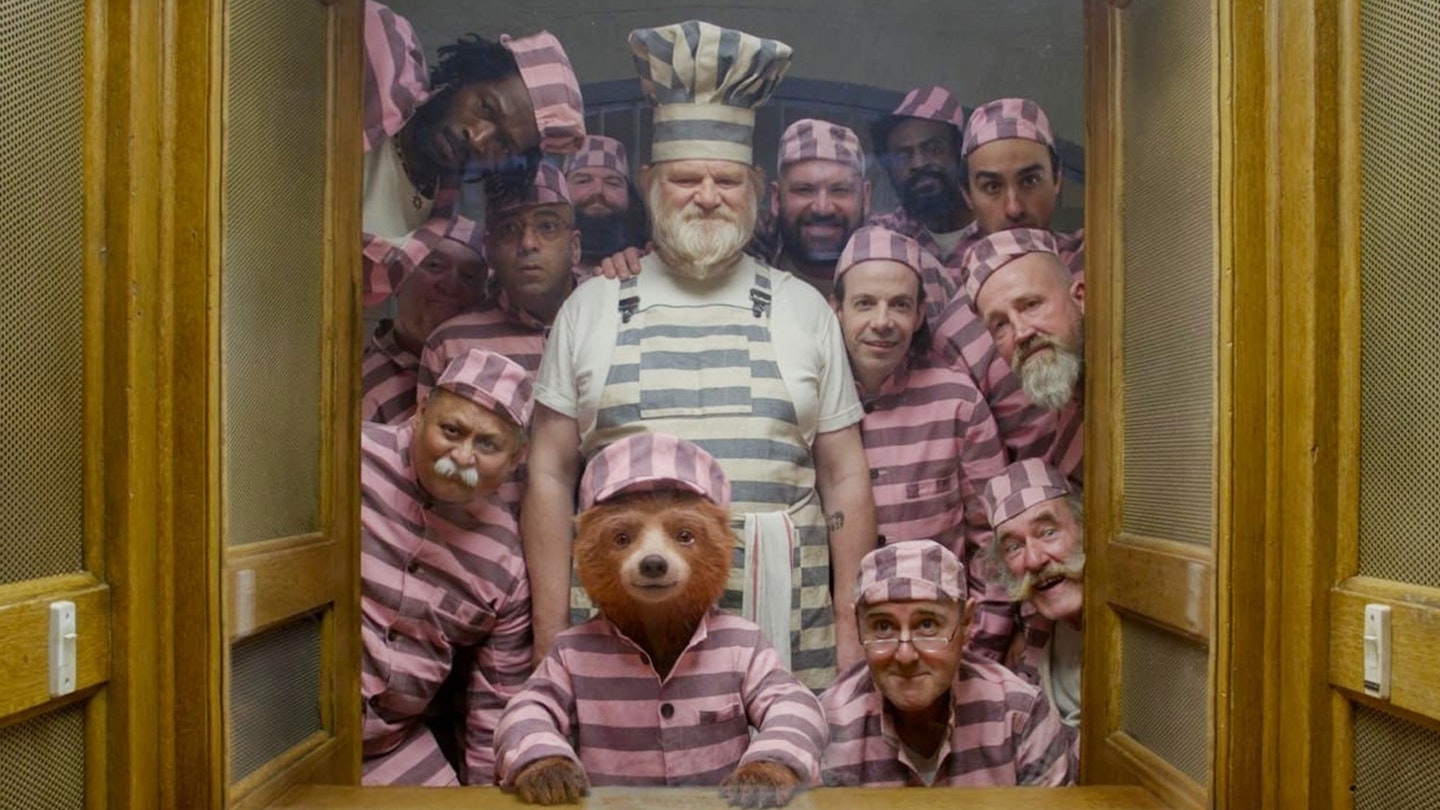No one else can balance the ups and downs of wistful sentiment and corny humour the way Capra can,' Pauline Kael ended her review of this political classic, but if anyone else should learn to, kill him.' Her cynicism is admirable. But she didn't live to see the devaluation of democracy that left neo-con America in desperate need of its own Mr Smith. Indeed, some 70 years after its release, this Washington morality tale is more prescient and pertinent than ever.
A touch of the story's spirit was evident in its genesis, when Rouben Mamoulian rejected Columbia chief Harry Cohn's offer of $75,000 for the rights to Lewis R. Foster's story and sold them for the cost price of $1,500 providing he could direct the long-cherished boxing drama, Golden Boy. Ironically, this once-prestigious project has since been largely forgotten as the reputation of Frank Capra's filibustering epic has grown.
However, many have accused Capra of sentimental populism in allowing James Stewart's gauche patsy to expose Claude Rains's suave villainy under the benevolent eye of Harry Carey's Vice-President and the adoring gaze of Jean Arthur's rejuvenated secretary. But this was a bleak indictment of a system that people were still in the habit of trusting implicitly and it would have been fascinating to see the reactions of the D.C. dignitaries who attended its gala premiere.
Cast for the hesitant naivete that distinguished him from Gary Cooper's folksy decency, Stewart's passage from idealism to harsh-won wisdom was not only credible, but also deeply moving, as he made superb use of both his beanpole vulnerability and his stuttering, initially poorly pitched delivery style to win over the sceptics in both the body and gallery of the meticulously recreated Senate Chamber.
But while the performances were universally outstanding, Capra bombarded viewers with provocative ideas that came as thick and fast as the instances of printed and verbal communication that he intimated were the making and the marring of modern governance in warning Americans to be on their own guard, for Mr Smiths were as rare as Paines, Taylors and Hoppers were plentiful and pernicious.

